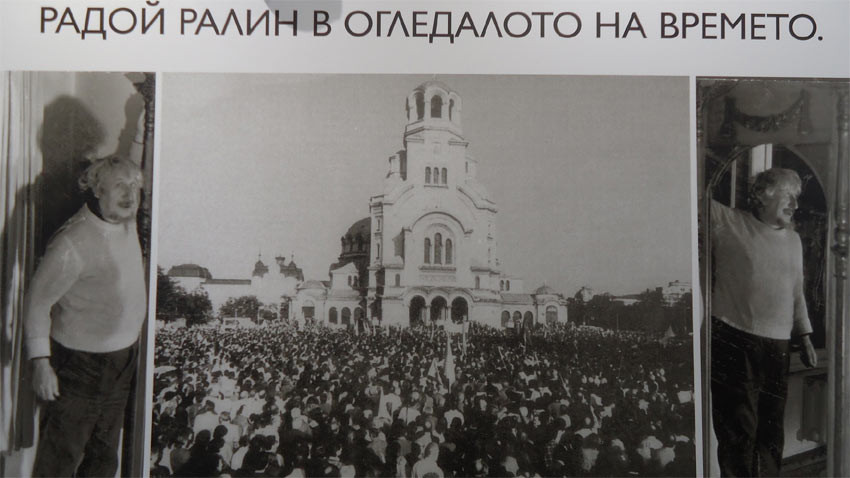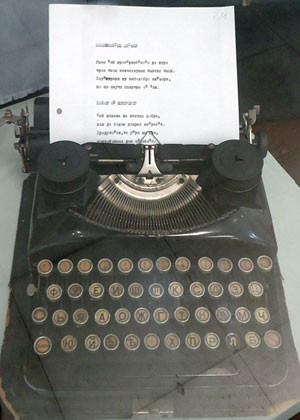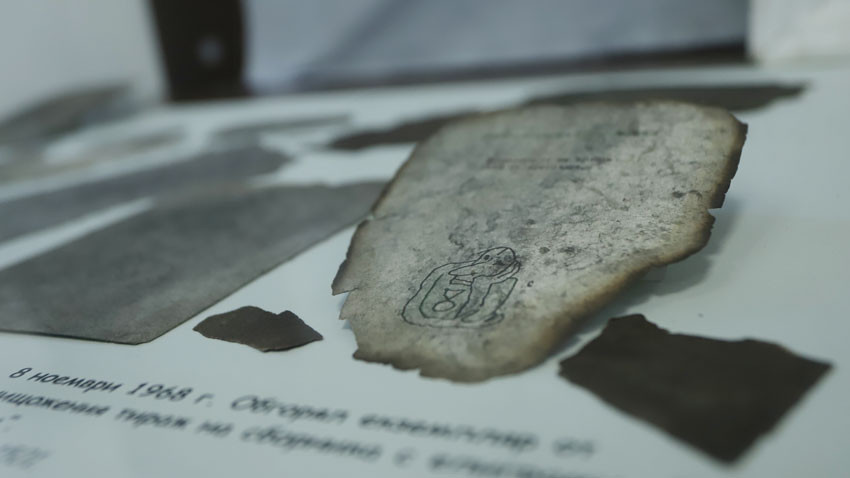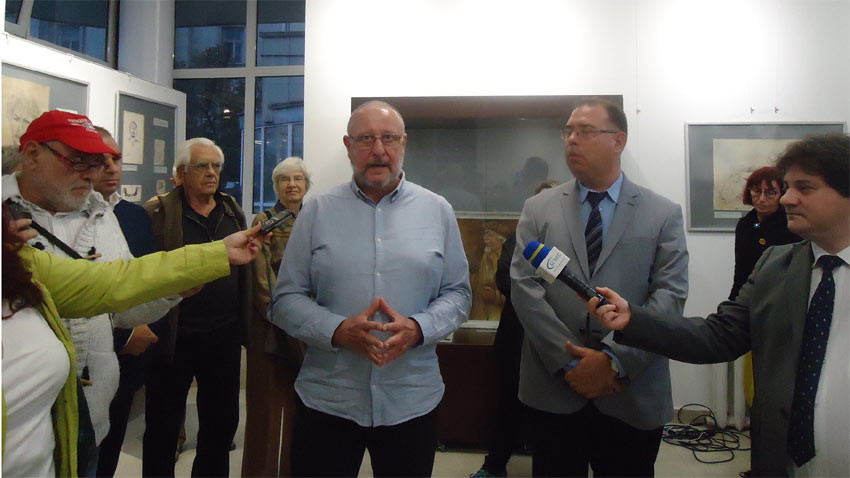 His charming figure emerges in our minds as we recall the first democratic rallies in Bulgaria. His calls for pluralism, free elections and human rights continue to be repeated today.
His charming figure emerges in our minds as we recall the first democratic rallies in Bulgaria. His calls for pluralism, free elections and human rights continue to be repeated today.
Radoy Ralin did not bow to authorities and regimes but always told the truth out loud and endured the consequences for his honesty. Before November 10, 1989, he mocked communist rulers in epigrams while his books were burned, and after the fall of the regime he did not hide his fears about the outcome of this given freedom. Three decades after the collapse of the Berlin Wall, 51 years after the burning of his collection "Hot Peppers" and 15 years after the satirist passed away have served as an occasion for the Archives State Agency to collect caricatures, photos and documents in an exhibition entitled “Radoy Ralin in the Mirror of Time."

“The exhibition contains about one hundred caricatures – the earliest one is from 1944 and the latest one from 2007,” says Ivanka Gezenko, curator of the exhibition. “We can see him as a participant in World War II and as a journalist in ‘Frontovak’ magazine. Along with renowned artists like Boris Dimovski, Nikola Mikhailov, Kalin Nikolov, Ivan Gazdov, he was also drawn by people whose signatures we cannot read. He had been drawn on a napkin from a restaurant, on a box of cigarettes, on ordinary notebooks, as he challenged others to make instant caricatures.”
According to Ivanka Gezenko, the poet will remain in history not only with his critical attitude to the totalitarian regime, but also with his poems, lyrics for over one hundred Bulgarian songs, with his brilliant epigrams, aphorisms, etc. Last but not least, he was an excellent translator. He translated Moliere, as well as Chinese poetry, even though he did not speak Chinese.
 “We also show two important things here – his typewriter Erika and a scorched copy of his collection of folk epigrams ‘Hot Peppers’, which enraged the socialist regime,” the curator says. “The interesting thing is that Radoy Ralin left us a message, putting some of the remains of the10 thousand copies of the book burned in the steam room of the printing workshop, between the pages of the Bulgarian Journalist magazine, collected in the envelope. And he put the envelope next to an extremely critical article, entitled ‘Let's use well satire's weapons’. Of course, he could have left them in another place, but he left the remains of his work next to what crushed him.”
“We also show two important things here – his typewriter Erika and a scorched copy of his collection of folk epigrams ‘Hot Peppers’, which enraged the socialist regime,” the curator says. “The interesting thing is that Radoy Ralin left us a message, putting some of the remains of the10 thousand copies of the book burned in the steam room of the printing workshop, between the pages of the Bulgarian Journalist magazine, collected in the envelope. And he put the envelope next to an extremely critical article, entitled ‘Let's use well satire's weapons’. Of course, he could have left them in another place, but he left the remains of his work next to what crushed him.”
In fact, only two of the epigrams in the burned collection were written by Radoy Ralin. The rest were folk works, collected by Petko R. Slaveikov, who added titles to them.

After three of his satirical collections were previously stopped, with "Hot Peppers" Radoy Ralin decided to show that he drew his inspiration from folk art. Authorities, however, attacked him over a caricature by co-author Boris Dimovski, believing that a pig's signature to the epigram "Full belly is deaf for science” looked like that of dictator Todor Zhivkov, said the poet’s son, journalist and writer Kin Stoyanov, who on the occasion of the 30th anniversary of the start of democratic changes in Bulgaria recalled of two of his father's epigrams.

"’The moment of freedom so unique, on the next day turns into regime’ was written after September 9, 1944, when he still had hopes that a society that allowed everyone to develop according to their capabilities and skills would emerge,” adds Kin Stoyanov. “Another epigram that was written after November 10, 1989 reads: ‘How short you are, freedom adored, once you appear and you are immediately destroyed here.’ We see that all illusions are already rejected and only art stands as a hope, to which he remained true to his last day.”

English: Alexander Markov
Photos: Diana Tsankova, BGNES and archiveA protest is being held tonight in front of the Ivan Vazov National Theatre against the premiere of the play Arms and the Man by Bernard Shaw, staged by John Malkovich , which will open at 7 p.m. "This play should not be staged at the National..
A Bulgarian production company will build a new film center worth EUR 15 million in the Sofia-Bozhurishte Industrial Park. The film center will span over 30,000 square meters. The contract for the sale of the land will be signed at the end of..
The first EU Songbook has been released, featuring six songs from each of the 27 EU member countries and Ode to Joy, the anthem of the European Union, reports BTA. The Songbook, a non-profit Danish initiative, has no financial ties to the EU,..

+359 2 9336 661
